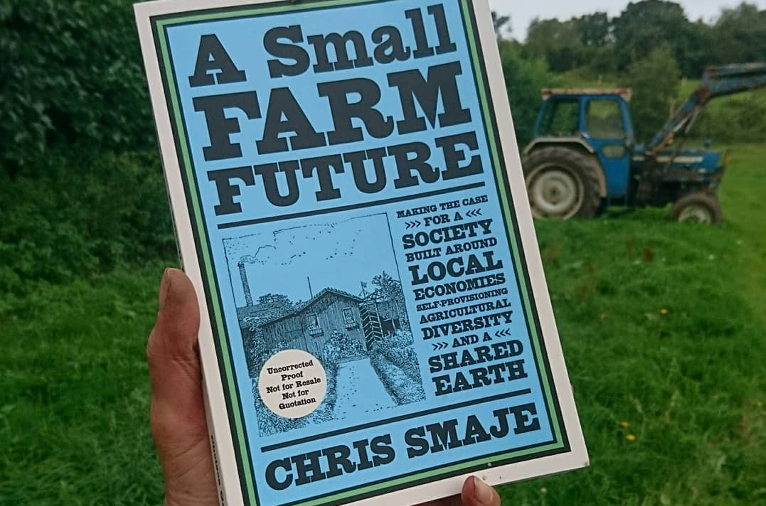The clock is running down on the time available to blog about my book A Small Farm Future, so I’m going to close the, ahem, book on it in this post with some brief remarks about the last two chapters in it, respectively titled ‘Dispossessions’ and ‘Does Goldman Sachs care if you raise chickens?’
Starting with the last first, the answer to that question is: no they don’t but do it anyway. The Goldman Sachs phrasing came from a Marxist author critiquing the political traction of the localist and neo-agrarian movement. And the later part of my book is among other things a critique of Marxist approaches to agrarianism. If you want to understand how humanity got into its present predicaments, a broadly Marxist historical perspective is in my view all but indispensable. Whereas if you want to understand how it might find a way to overcome those predicaments, contemporary Marxist approaches are in my view largely an impediment, involving the fighting of old battles ill-suited to present times, and failing to learn the historical lessons from them. So I say go ahead – raise chickens, and build agrarian communities.
In the final chapters of my book I lay out an agrarian populist alternative that I’ve written copiously about in previous posts. All I’ll do here is make three overarching points about it.
First, there is no single or simple way to overcome present predicaments. My book is not one of those ones structured along the lines of ‘Well, it all looks pretty bleak, huh? But don’t worry, I can see a solution, and if the world just follows my ten-point plan, then it’ll all turn out rosy’. There is no simple solution, and there’s definitely no simple technological solution, though new technologies may of course be of assistance.
Second, there is, likewise, no single or simple class of people who hold the key to overcoming present predicaments. You will not root out all the ‘commies’ or all the ‘reactionaries’, and you will not succeed in creating a purified political identity through the revolutionary overthrow of the old ones, although you may have to fight some of the old ones, metaphorically or actually. The best course of action where possible is alliance-making and clarifying realistic shared options.
Third, it wasn’t that long ago in most places that a lot more people lived more land-based lives grounded within more local and more renewable economies than today. It’s unlikely that the future will involve faithful replication of these lifeways, but it’s well worth understanding how they worked, how they came to an end, and what aspects of them might be worth articulating in the future. And, in considering how they came to an end, it’s well worth viewing this not as dead history, but a living book in which we’re about to write another chapter.
And, talking of books, that, my friends, is my last word for now on A Small Farm Future. But I daresay I will return to many of the themes I’ve been exploring over the last couple of years here in respect of it. Meanwhile, another book is stirring…






